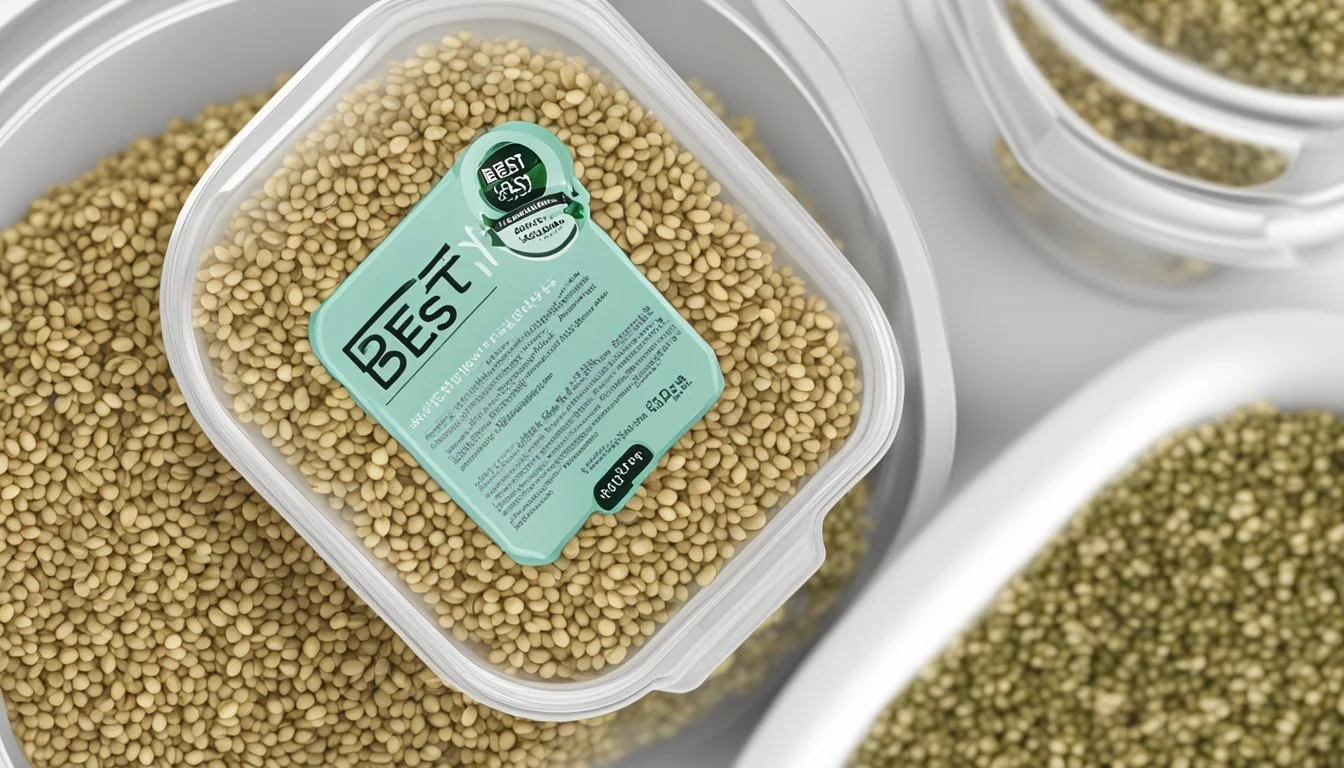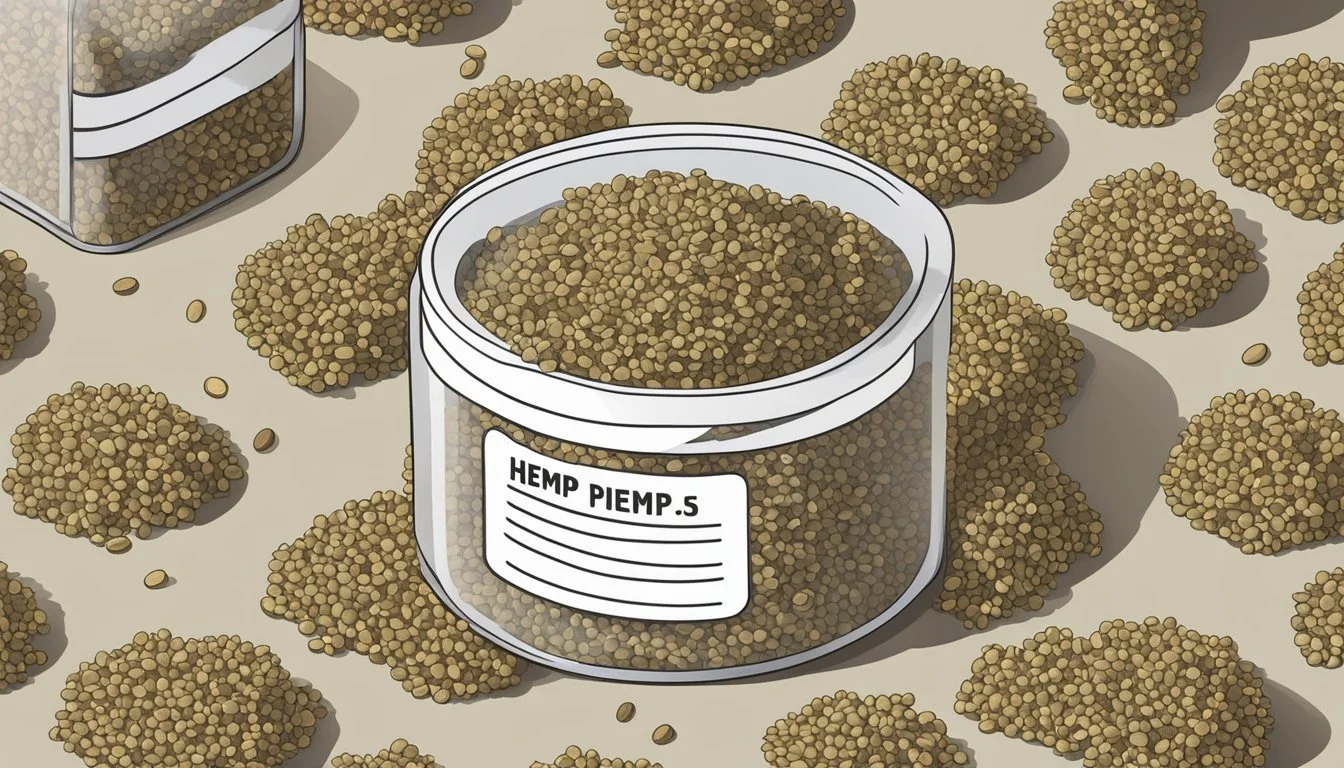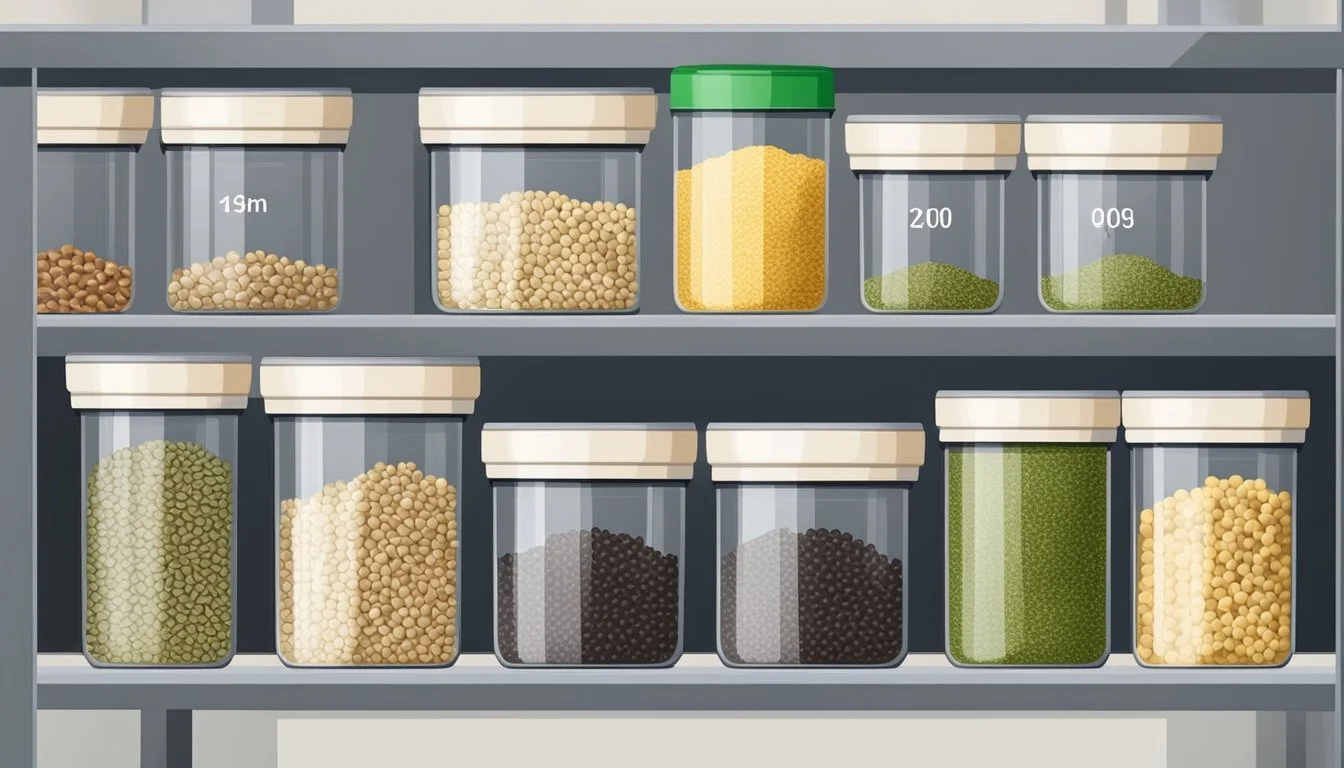Do Hemp Seeds Go Bad?
Shelf Life and Storage Guide
Yes, hemp seeds can go bad. Known for their impressive nutritional profile, hemp seeds from the Cannabis sativa plant are a versatile superfood that many incorporate into their diets. However, their shelf life varies depending on storage conditions. When kept at room temperature, shelled hemp seeds typically last three to four months, while unshelled seeds can last up to a year.
For extended freshness, it is advisable to refrigerate or freeze hemp seeds. Stored this way, shelled hemp seeds can last six to twelve months, and unshelled seeds can remain fresh for up to eighteen months. Exposing hemp seeds to light, heat, and air can hasten spoilage, so proper storage in an opaque, airtight container is crucial.
Storing hemp seeds properly ensures they retain their rich nutrients, including healthy fats, protein, and essential vitamins. By following these guidelines, consumers can enjoy the full benefits of this superfood without compromising on quality or nutrition.
Nutritional Profile of Hemp Seeds
Hemp seeds are packed with nutrients that provide various health benefits. They are an excellent source of protein, containing all nine essential amino acids. This makes them a high-quality protein option for vegetarians and vegans.
Macronutrients
Hemp seeds are rich in fatty acids, with a balance of omega-3 and omega-6 fatty acids. They also provide a significant amount of fiber, especially when consumed with their shells.
Nutrient Amount per 100g Calories 553 Protein 31.6g Total Fat 48.8g Omega-3 9.3g Omega-6 28.2g Fiber 4g
Micronutrients
Hemp seeds offer a wealth of vitamins and minerals, including magnesium, zinc, iron, potassium, phosphorus, and calcium. These minerals are essential for numerous bodily functions and maintaining good health.
Magnesium: Supports muscle and nerve function.
Zinc: Important for immune system health.
Iron: Crucial for blood production.
Potassium: Helps regulate fluid balance and blood pressure.
Phosphorus & Calcium: Essential for bone health.
Antioxidants and Health Benefits
Hemp seeds contain various antioxidants, which help in protecting the body from damage by free radicals. These antioxidants, along with the healthy fatty acids, contribute to heart health. The high fiber content in the shells aids in digestive health and may help in controlling cholesterol levels.
Shelf Life Determinants for Hemp Seeds
The longevity of hemp seeds depends on various factors including storage conditions, processing methods, and the natural degradation of quality over time. Identifying spoilage effectively can prevent the consumption of rancid or moldy seeds.
Effects of Storage Conditions
Storage conditions crucially impact the shelf life of hemp seeds. Temperature regulation is important; seeds should be kept in a cool environment, ideally in refrigeration. Room temperature storage is suitable, but it significantly shortens their lifespan.
Moisture and light also play critical roles. An airtight container protects against moisture, which can prompt mold growth. Using opaque containers can block light and further extend shelf life.
Proper packaging materials, such as plastic or glass jars with tight seals, prevent oxygen exposure, which can lead to rancidity.
Impact of Processing Methods
Processing methods determine the shelf life of hemp seeds. Raw hemp seeds last longer when compared to processed forms like hemp milk, protein powder, or hemp flour. Roasted hemp seeds may also have a reduced shelf life due to the exposure to heat.
Shelled hemp seeds or hemp hearts deteriorate faster than unshelled ones since the shell acts as a natural barrier against environmental factors. Manufacturers often provide guidance on maintaining freshness, emphasizing storage methods like refrigeration or freezing.
Quality Degradation over Time
Over time, the quality of hemp seeds degrades, even under optimal storage conditions. Rancidity is a key concern due to the high oil content in hemp seeds, leading to the generation of free radicals.
Changes in taste and smell are common as freshness diminishes. Fresh seeds possess a mildly nutty flavor and a neutral smell, while rancid seeds have a distinct, unpleasant odor.
Checking packaging dates and observing changes in the seed's appearance can help gauge quality degradation.
Identification of Spoilage
Identifying spoilage in hemp seeds is vital for safety and quality. Visual inspection can reveal signs of mold or discoloration. Mold appears as white or green fuzz, indicating exposure to moisture.
Smell is another indicator; a rancid smell points to oil degradation. If seeds emit a foul odor, they should not be consumed.
Taste tests can confirm spoilage; any bitter or sour taste suggests the seeds have gone bad. It's essential to rely on both sensory and visual cues to accurately identify when hemp seeds are no longer suitable for consumption.
Proper Storage Solutions for Hemp Seeds
Effective storage solutions are crucial to maintain the quality and shelf life of hemp seeds. Proper techniques can prevent moisture, light, and temperature fluctuations from spoiling the seeds.
Short-Term versus Long-Term Storage
For short-term storage, hemp seeds can safely be kept at room temperature in a pantry. They should be in an airtight container to minimize exposure to light and moisture, preserving their quality for about 3-4 months for shelled seeds and 6-12 months for unshelled seeds.
For long-term storage, refrigeration or freezing is recommended. Shelled seeds can last up to 12 months in the refrigerator and even longer in the freezer. Unshelled seeds extend their freshness for 12-18 months refrigerated or up to several years when frozen.
Protective Packaging Practices
Packaging plays a critical role in maintaining hemp seed freshness. Use opaque or dark-colored containers to protect the seeds from light, which can degrade quality over time. Airtight containers are essential to keep moisture out and maintain the ideal environment.
When purchasing hemp seeds in bulk, transfer them from their original packaging to a more protective container immediately. Vacuum-sealed bags are also a good option for reducing air exposure. Always label containers with purchase dates to help manage storage duration effectively.
Storage Tips from Manufacturers
Manufacturers often recommend specific storage practices to maintain the quality of hemp seeds. Cool, dark, and dry conditions are universally suggested. Placing the seeds in a refrigerator or freezer can significantly extend their shelf life.
Additionally, manufacturers advise against storing hemp seeds near strong-smelling foods, as seeds can absorb odors, affecting their flavor and quality. Regularly checking "best before" dates and adhering to these periods can also ensure the seeds are consumed while still fresh.
Common Uses for Hemp Seeds in Food
Hemp seeds are a versatile and nutritious addition to many recipes, offering benefits such as high protein content, essential fatty acids, and a nutty flavor. They can be incorporated in various ways to enhance both the taste and nutritional profile of everyday dishes.
Culinary Applications of Hemp Seeds
Hemp seeds can be used in a wide range of culinary applications. They can be sprinkled on top of salads, added to smoothies, or mixed into yogurt for a nutrient boost. Because of their nutty flavor, hemp seeds can also be used in baking; they make an excellent addition to bread, muffins, and cookies. Furthermore, hemp seeds can enhance the texture and flavor of breakfast dishes like oatmeal and granola.
Hemp milk, derived from hemp seeds, is another popular product that serves as a dairy alternative. It can be used in coffee, tea, cereal, or simply enjoyed on its own. The versatility of hemp seeds makes them an excellent ingredient for numerous recipes, from savory to sweet.
Nutritional Enhancements with Hemp Seeds
Hemp seeds are celebrated for their exceptional nutritional value. They are a complete source of protein, containing all nine essential amino acids. In addition, hemp seeds are rich in omega-3 and omega-6 fatty acids, which are vital for heart health.
These seeds also provide significant amounts of fiber, which aids in digestion, and are packed with essential vitamins (A, B, C, E) and minerals such as magnesium, potassium, phosphorus, calcium, and zinc. By incorporating hemp seeds into daily meals, individuals can easily boost their intake of these essential nutrients, promoting overall health and well-being.
Alternative Hemp Seed-based Products
Beyond whole seeds, various hemp seed-based products offer additional versatility. One common product is hemp protein powder, which is often used in smoothies or protein shakes. This powder is ideal for those seeking to increase their protein intake without consuming animal products.
Hemp hearts, or shelled hemp seeds, are another popular option. These are often easier to digest and can be used similarly to whole seeds. Hemp oil, derived from hemp seeds, can be used as a dressing for salads or drizzled over dishes to provide a burst of healthy fats. All these products allow individuals to enjoy the health benefits of hemp seeds in various convenient forms.
Health Benefits and Considerations of Consuming Hemp Seeds
Hemp seeds offer numerous nutritional benefits, including omega-3 and omega-6 fatty acids, protein, and various vitamins and minerals. Despite their benefits, it is important to be aware of potential risks and allergenic reactions.
Supporting Cardiovascular Health
Hemp seeds are rich in omega-3 fatty acids, particularly alpha-linolenic acid, and omega-6 fatty acids. These nutrients help support heart health by reducing inflammation, lowering blood pressure, and decreasing the risk of heart disease.
Regular consumption of hemp seeds can help manage cholesterol levels due to their high content of unsaturated fats. Including hemp seeds in a daily diet could potentially reduce the risk of arrhythmias and other cardiovascular conditions.
Anti-inflammatory and Skin Health Benefits
Hemp seeds possess anti-inflammatory properties, largely due to their fatty acid content. The presence of gamma-linolenic acid (GLA) can help manage chronic inflammation and improve overall skin health.
For individuals suffering from conditions like eczema, incorporating hemp seeds into the diet might provide relief. The antioxidants and essential fatty acids present in hemp seeds promote healthier skin, making them beneficial for managing a range of skin-related issues.
Weight Management and Digestive Benefits
Hemp seeds are high in both fiber and protein, contributing to weight management and improved digestion. The dietary fiber helps maintain regular bowel movements and supports a healthy digestive system.
Protein found in hemp seeds, including all essential amino acids, aids in muscle repair and growth. This makes hemp seeds a valuable addition to the diet for those looking to manage weight while ensuring they get complete nutrition.
Potential Risks and Allergenic Reactions
While hemp seeds provide many health benefits, they can also pose risks. Individuals with nut allergies should exercise caution, as hemp seeds might trigger allergic reactions.
Additionally, although hemp seeds come from the cannabis sativa plant, they contain only trace amounts of THC and are non-psychoactive. However, it's crucial to source hemp seeds from reputable suppliers to avoid contamination. Monitoring intake and ensuring appropriate storage will maximize both safety and benefits.







